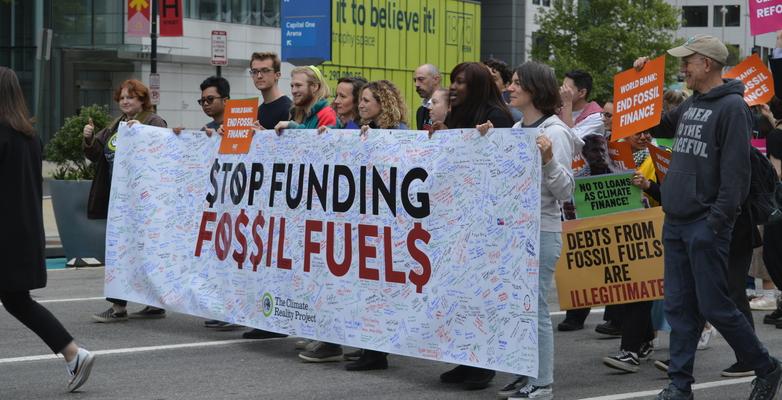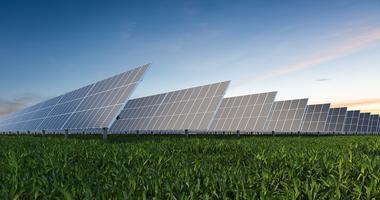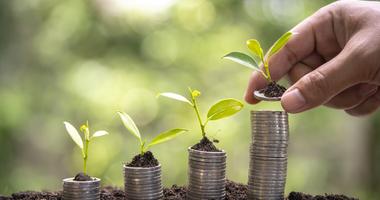
Why We Should All Care about World Bank Reform
The success of global climate action hinges on a financial system equipped to support a fast and fair energy transition in the Global South.
6 min read
While never attracting the same round-the-clock media scrutiny or enormous crowds as UN COP climate conferences, the World Bank's biannual meetings with the International Monetary Fund have fast become two of the most critical weeks on the calendar in determining how far and fast we go in confronting climate change.
After all, in the race to halve greenhouse gases emissions this decade and head off catastrophic warming, we succeed or fail together. The atmosphere is notably agnostic as to whether emissions come from Peoria or Pretoria. When it comes to arresting or accelerating the steady uptick in temperatures, only the total volume matters.
Of course, today, the world is massively off track in reducing emissions fast enough to meet this goal. Some wealthy nations are beginning to make progress (albeit not enough) in shifting their economies away from fossil fuels.
But unless the Global South nations that account for roughly 40% of global GDP and 85% of the world's population and emissions from India and Africa now projected to grow for some time– are part of this energy transition too, our chances of reaching the Paris Agreement stretch goal of 1.5 degrees are a longshot at best.
So how does this change? As a 2023 UN report highlights, the key lies in providing access to affordable finance, enabling Global South countries to develop with clean energy technologies that – unlike fossil fuels – can bring power to millions today without threatening their lives and our planet tomorrow.
Which is where the World Bank comes in.
A Powerful Institution with a Love for Fossil Fuels
Historically, when climate advocates talked about multilateral development banks (MDBs) like the World Bank, it was not as a force for progress.
As a new report from Oil Change International underscores, MDBs have a huge role in shaping energy investments in recipient countries, providing grants and accessible finance that not only support projects directly but de-risk them for private investors.
As both the biggest MDB (by 2023 lending data) and one of the biggest creditors on the planet, the World Bank stands above all other MDBs with extraordinary influence in shaping the direction of energy choices around the world – and particularly in the Global South.
For many years, these choices have been largely pushing the planet toward a hotter and hotter future. From 2020–2022, the World Bank Group (WBG) was the largest direct funder of fossil fuels among multilateral development banks, providing on average $1.2 billion in financing each year.
Plus, despite being the biggest source for climate-related development finance, the bank's real world track record on climate is mixed at best. Recent reporting showed that hundreds of nominally climate-related projects receiving WBG funding have no real connection to, well, actual climate purposes. Then, of course, there was David Malpass, the bank's previous president, who refused to publicly acknowledge the simple fact that fossil fuels are driving climate change, saying, "I am not a scientist."
The bank has made significant progress under its new president, Ajay Banga (more on that below), but if the bank is serious about its mission to "end extreme poverty and boost shared prosperity on a livable planet," it has to completely change course. Fast.
The world's scientists are crystal clear on the need to halve emissions by 2030. With its funding decisions effectively driving energy policy for countries across the Global South, the bank will have an outsize role in determining whether we meet this goal or not.
A Critical Window for Energy Investment
The clock is ticking for the World Bank in more ways than one. Power plants can run for 30–50 years in order to recoup the billions invested in them, with the result that building new coal, gas, or oil infrastructure can lock in emissions for decades.
The Global South needs lots of electricity to develop – and it needs it fast. The urgent challenge for the bank is to ensure countries have access to affordable finance to enable them to build the massive renewable infrastructure necessary to meet these needs without fossil fuels.
The stakes are enormous and the window for action is short. As POLITICO reports, former USAID administrator and current Rockefeller Foundation President Raj Shah told reporters that, "without cheaper access to finance, coal and diesel are projected to supply energy for the nearly 3.5 billion people today who consume less than 1,000 kilowatt-hours of power annually.
'If we don't make the changes now, in two decades, we lose the fight on climate. Period,' said Shah."
A new report from the Potsdam Institute puts numbers to what losing the fight means. The authors project that the impacts of climate change will already cost some 19% of per-capita income by 2050. Which equates to a staggering $38 trillion each year, or more than double the EU's GDP.
As with so much of the climate crisis, these costs will be highly unequal, hitting the Global South hardest of all, with the authors noting, "The largest losses are committed at lower latitudes in regions with lower cumulative historical emissions and lower present-day income."
What the report also makes clear is these costs could get much, much higher, should the world keep burning fossil fuels. But, critically, the costs we face from inaction are an estimated six times higher than the costs of the global energy transition necessary to meet Paris Agreement goals.
Which brings us back to the World Bank and the urgent need for finance to catalyze exactly this level of action.
To his credit, the bank's new president, Ajay Banga has made climate a core focus since taking the role last June, committing to dedicate 45% of the bank's annual financing to climate projects. To help overcome the real limits of bank resources compared to the scale of the climate challenge – as he recently told reporters, "I don't have infinite money" – he's also worked to stretch balance sheets by working to attracted private investors and increase the capital available to for climate projects.
Four Key Steps Forward
The bank's progress under Banga is heartening, but with the pace of warming leaving scientists simply slack-jawed, the institution needs to move faster and more boldly than perhaps any time in its recent history.
Effecting policy change on a scale equal to the climate challenge at a massive institution is admittedly a big ask. But four key reforms can help the bank realize its full potential as a powerful force for change and help speed a just transition to clean energy worldwide.
1. Stop funding all fossil fuels.
As the line goes, the first rule of being in a hole is to stop digging. Despite saying the right things about climate in public, the WBG has poured billions into fossil fuel projects worldwide in recent years, both in direct and indirect financing.
The bank's own research shows climate change could push up to 132 million people into extreme poverty this decade. If WBG is serious about its mission, it has to end all funding for any aspects of fossil fuel projects. A good place to start would be adding any fossil fuel-related expenditures to the list of prohibited items in all legally binding agreements with borrowers.
2. Dedicate at least 50% of total annual financing to climate projects and expand fair and accessible credit for climate vulnerable nations.
Ending new fossil developments is only the first step. The bank has an equally critical role in creating better development paths for Global South nations, powered by clean energy.
With many nations making investments now that will lock them into emissions-heavy or renewable pathways for decades to come, the bank needs to allocate resources accordingly and increase funding for climate projects to support energy transition at this critical moment. Many Global South nations have signaled support for clean energy initiatives but struggled to access financing at the same fair rates wealthy nations enjoy. What the World Bank in particular can do is both provide accessible financing and help de-risk clean energy projects for private investors.
3. Commit to funding the International Development Association (IDA) at levels that align with a 1.5 degrees pathway.
The bank's IDA has become one of the world's primary vehicles for getting much-needed financing to climate vulnerable nations to respond to the increasing droughts, rising seas, and storms unleashed by rising temperatures.
As warming continues, IDA faces two inseparable challenges. The first is enabling vulnerable nations to transition quickly and boldly enough to help keep the world on course to 1.5 degrees. The second is supporting them in adapting to impacts growing more severe with every fraction of a degree.
IDA's effectiveness here depends in no small part on its funding, which is replenished by donors through regular cycles. To enable vulnerable countries to transition quickly enough and survive cascading climate impacts even at 1.5 degrees of warming, experts now say IDA funding must reach $279 billion by its 22nd replenishment in 2031.
Assuming the WBG is successful here, the priority will be to get this funding out quickly and primarily through grants and highly concessional loans that do not plunge borrowers – many of which already face crippling debt payments – further into unsustainable debt.
4. Ensure the WBG actively works to identify unintended negative impacts of funded projects.
One of the biggest challenges facing the bank today is its own long legacy of advancing projects that displace communities and devastate local ecosystems. Reversing this pattern and creating effective paths for local communities to address any harms will be critical to building goodwill and ensuring long-term success. A good place to start is developing independent complaints mechanisms to proactively identify potential impacts early on and remedy them through people-centered redress frameworks.
It's Time for the World Bank to Seize the Moment
Not everyone gets a second chance at redemption. But that's exactly what the WBG has now and with the four reforms above, it can become a major catalyst for just energy transition and climate action on a global scale.
This is admittedly easier said than done. Today, climate change joins multiple wars and elections worldwide on a long list of as factors leading countries to adjust priorities and tighten their purse strings. But this is the critical chance we have – and it's time for the WBG to seize it.
Take action today and tell the World Bank to stop funding fossil fuels.




